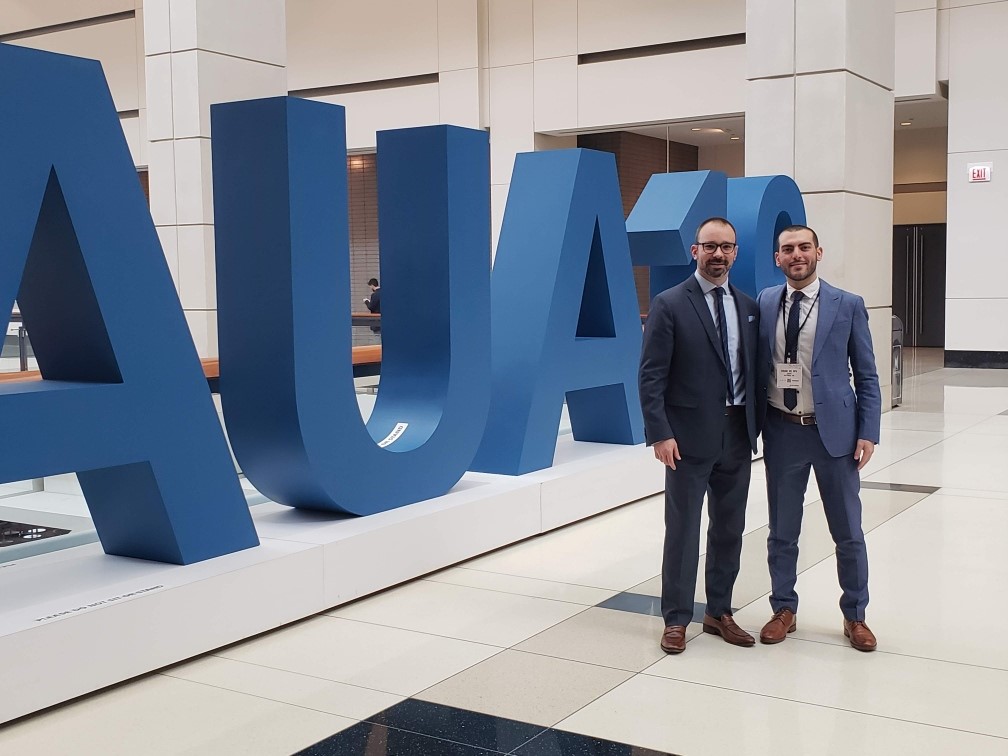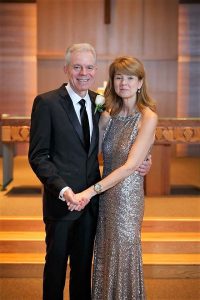In spring 2021, Joseph Cheaib, MD, SPH ’18 (MPH), a postdoctoral research fellow at The Brady Urological Institute, became the first international medical graduate to match for residency in urology at Johns Hopkins since the 1970s.
“I came all this way, and this is what I wanted to do,” he says. “I’m very fortunate. This is the ultimate dream, and it’s thanks to the donors and their philanthropy.”
Originally from Lebanon, Cheaib grew up in Canada and the United Arab Emirates. He returned to Lebanon for his undergraduate and medical education and graduated as the first physician in his family from the American University of Beirut in 2017.

“I just fell in love with urology during medical school,” Cheaib says. “I’ve always wanted to be an academic physician and aspire to do research to make an impact on the field of urology. As much as I love Lebanon, the resources and opportunities there didn’t allow me to do that. That’s when I made the decision to come to the U.S. to continue my training.”
Cheaib has worked with Phil Pierorazio, MD, now chair of the Department of Urology at Penn Presbyterian Hospital, while Pierorazio was faculty at The Brady. They met as part of a mentorship program when Cheaib was working on a master’s degree in epidemiology and biostatistics at the Bloomberg School of Public Health. Eager to improve his research skills, Cheaib asked Pierorazio if he could join his team as a postdoctoral fellow.
“In general, we’ve always had a position of someone who did research with us,” Pierorazio explains. “It’s finally evolved into this postdoc position. It provides advanced training for established physicians and an opportunity for a research infrastructure and research program so they can build their research acumen while doing work.”
Cheaib is the inaugural holder of the fellowship, which was established through philanthropy in 2018 in support of Pierorazio’s work.
Pierorazio leads the Delayed Intervention and Surveillance for Small Renal Masses (DISSRM) registry, one of the largest active surveillance registries for patients with small kidney tumors, work that connected him, and later Cheaib, with Derrick and Kate Kuzak. Based in Michigan, the Kuzaks have supported Pierorazio’s work for the last several years. Now, they’re helping fund the postdoctoral fellowship.

Derrick Kuzak, who has a doctorate in engineering and a keen eye for research, connected with Pierorazio after a CT scan found a small renal mass. Local physicians gave conflicting recommendations for his treatment, so the Kuzaks began to do their own research. They found Pierorazio’s work with the DISSRM registry and reached out.
“As an engineer, I found truly exceptional the development of the registry and the associated analysis being done by Dr. Pierorazio and his team, as they demonstrate the efficacy of active surveillance,” Derrick Kuzak says. “More importantly, as a patient, their work allowed me to make a life-changing decision in a data-driven manner and with confidence.”
Derrick was struck by Pierorazio’s ability to discuss treatment options. They made the decision to proceed with active surveillance, where doctors monitor the kidney through ultrasounds or CT scans on a regular basis to check for increase in size.
“Everyone at The Brady is just extremely professional, extremely courteous. They really put you at ease. They included me. We did it together like we do everything,” Kate Kuzak says, adding the pair has been married for 42 years.
When the opportunity to fund a postdoctoral fellow to aid in Pierorazio’s research arose, the Kuzaks were delighted to help. Much of their philanthropy is education-based, and the couple have established scholarship programs for high school and university students, especially minority and female students interested in careers in science or engineering.
Though Cheaib has not been able to meet donors like the Kuzaks in person, he has connected with them via email to share his gratitude and some of the work he’s done during his time as a research fellow.
“He personally sent us a letter, and it’s really gratifying to see the impact that you’re having,” Derrick Kuzak says. “He’s particularly proud of the fact that they’re now able to make with confidence recommendations for younger patients, giving them the opportunity to make a careful decision on surveillance or surgery, which was really gratifying for us.”
Kate agrees.
“It was a beautiful letter,” she adds. “It’s the expertise, intelligence, and diligence, but it’s also the passion they have that moves it forward. And that’s really impressive to us.”
Cheaib is excited for his next six years as a resident at Hopkins, made possible because of the fellowship and the family he’s built at The Brady that he says has shaped him both professionally and personally. And thanks to donors like the Kuzaks, the postdoctoral research fellowship will continue to help advance promising young physicians.
“It’s really been a tremendous success story,” Pierorazio says “I hope it sets the benchmark moving forward.”
Topics: Faculty and Staff, Friends of Johns Hopkins Medicine, Johns Hopkins Medicine, Support Scholars